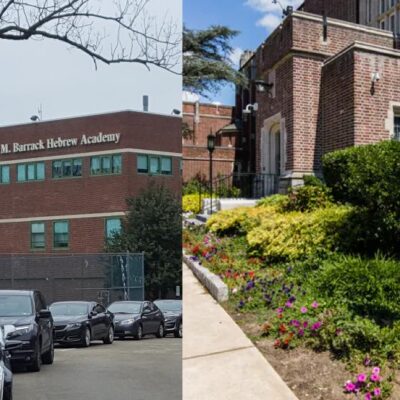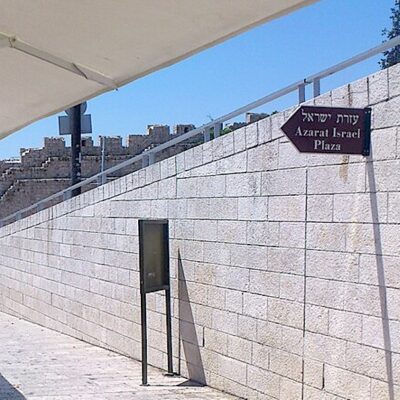New Israel Museum Exhibition Reveals the Secrets of the Israeli “Mayflower”

On December 19th, 1919, after a long and tiresome voyage from Odessa, Ruslan, the ship that has become a myth and a symbol of the Third Aliyah, docked at the port of Jaffa. It carried about 600 travelers. Among them – refugees fleeing war and pogroms, and pioneers burning with Zionist ideology. Ruslan has been dubbed “the Israeli Mayflower,” because so many members of its precious human cargo entered the Pantheon of the Yishuv and the State of Israel as people of spirit and action, intellectuals and ideologues, artists and poets, leaders and activists. She gained an almost mythical reputation as a herald of the Third Aliyah and the symbol of pioneering immigration, although other immigrant ships arrived before her.
This December, “Ruslan,” arrives in Jerusalem. With the support of Genesis Philanthropy Group, a new exhibition, “And the Ship Sails On: Cultural Pioneers Aboard the Ruslan,” will open at The Israel Museum, Jerusalem on December 19, 2019 to mark the centennial of her voyage and of the establishment of Central Zionist Archives. The exhibition will present the story of the Ruslan – and the subsequent achievements of its notable passengers – through artworks, archival film excerpts, photographs, manuscripts and historical documents, allowing visitors to enter the world of some of the people whose influence on Israeli culture and society is felt to this day.
On this, 100th anniversary of Ruslan’s arrival and the establishment of the Central Zionist Archive, the new exhibition at The Israel Museum reveals the story of the journey itself and the myth that has developed around it. Historical documents from the Zionist archive and other collections (most of which will be presented to the public for the first time ever), as well as works of art, old cinematic fragments, and photographs and manuscripts will demonstrate the contribution and influence of prominent Ruslan passengers on the development of Israeli society, culture and art.
“The unique combination of an art exhibition alongside historical documents allows a rare glimpse into the formative processes of a significant part of Israeli art and culture in pre-state times,” said Prof. Ido Bruno, Director General of the Museum of Israel. “The study that accompanied the curatorial process revealed information and unfamiliar works that make the visit to the exhibition particularly exciting.”
“The exhibition sheds light on the important years in the development of art and culture in Israel,” said curator Talia Amar. “The voyage of the Ruslan became known as a symbol of the Third Aliyah and example of myths associated with it that will continue to resonate in Israeli history and literature for years to come.”
“The momentous geopolitical situation that prevailed at the end of the First World War, which allowed the return of refugees to Israel, was the catalyst for many to try to board the ship so as not to miss an opportunity that might not return,” said Dr. Yigal Sitri, Director of the Zionist Archives at the World Zionist Organization. “That is why some of them equipped themselves with fake certificates to prove their affinity to the Land of Israel.”
Among those on board were such future icons of Israeli and modern Jewish culture as Rachel “The Poetess” Bluwstein; Jonathan Ratosh; Baruch Agadati; historian and literary researcher Joseph Klausner; architects Ze’ev Rechter and Judah Magidowicz; artists Pinchas Litvinovsky and Yitzhak Frankel; one of the founders of the Jerusalem School of Medicine, physician Arie Dostrovsky and his daughter Yocheved; art collector and Zionist activist Yakov Peremen; composer and educator Shmuel Navon; social activist and mother of Yitzhak Rabin, Rosa Cohen; and many others.
“The journey of the Ruslan signifies, among other things, the renewal of the Jewish nation on the path to independence and the transfer of the cultural and intellectual treasure of the Jews of the decaying Russian Empire, from Odessa – a significant city in the history of the Jewish people and a birthplace for so many writers and thinkers – to the Land of Israel,” said Ilia Salita, President and CEO of Genesis Philanthropy Group. “We believe that marking 100 years of a journey of this cultural ‘Noah’s Arc’ presents a great opportunity to recall the deep historical connection between the heritage of Russian-speaking Jews and the Jewish national revival in the Land of Zion.”

 Add EJP on Google
Add EJP on Google









